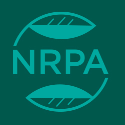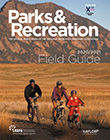
2020 NRPA Virtual Comprehensive Bundle
- Registration Closed
The 2020 NRPA Virtual education sessions provide an inspirational approach to professional development for Park and Recreation professionals. Register for this comprehensive package of the 2020 education sessions and join the discussions on innovation, social equity, and the essential roles you serve to positively impact communities.
This bundle is packaged to provide over 5.0 CEU upon completion by including the full education sessions plus, all Speed Sessions (0.68 CEU eligible) are included for no additional cost.
Total eligible CEU upon completion: 5.18
-
Contains 4 Component(s), Includes Credits
Join this 2020 Virtual session and develop a five-question "listening" system that will allow you to effectively check in with your staff and volunteers in 10 minutes or less. Use a series of questions to learn from part-time staff and volunteers about workplace wins, challenges, and suggestions for leadership.
Can you say your workplace culture values actionable feedback, staff development, and personal connection if you don't have uninterrupted time to give your staff and volunteers the floor to share their work experiences? In 20 minutes, learn to develop a five-question "listening" system that will allow you to check-in with your part-time staff (one-on-one and in 10 minutes or less!) and hear in their own words about their workplace wins, current challenges, operational suggestions, peer contributions and suggestions for leadership (that's you!). Leave with a five-question template to take and tweak as well as master documents to set up your sessions, explain the impact to staff and volunteers, and organize and collect your data.
Learning ObjectivesFollowing this session, learners will be able to:
- How to create 1x1 feedback based check-in sessions with your part-time staff and volunteers.
- How to use a series of questions to gather feedback from their perspective.
- Rework questions to fit your organization and the individual in front of you to elicit a valuable response.

Kate Connell
City of Iowa City
Kate Connell is an advocate for equity in recreational water use and has assisted in providing free swimming lessons, safety education, and accessible pool events. Kate leads trainings and conversations on equitable aquatics, staff training, and humanness through leadership. Kate also is experienced in private recreation as a yoga teacher trainer and author of The Art of Teaching Private Yoga.
-
Contains 3 Component(s), Includes Credits
Join this 2020 Virtual session that discusses secondary and supplemental sanitation; as well as, measures to promote patron health and safety to reassure and rebuild communities that have been impacted by COVID-19.
After many facilities were shut down during the COVID-19 pandemic, communities went on high alert from public health risks. Being closed over a Cryptosporidium outbreak or other Recreational Water Illnesses (RWIs) gathers more attention than ever. Aquatic facilities are installing secondary sanitation to reduce risk and protect swimmers while providing additional patron assurances. This session explores secondary and supplemental sanitation, as well as how taking measures to promote patron health and safety can help reassure, and thereby, rebuild communities that have been deeply scarred by COVID-19.
Learning Objectives
Following this session, learners will be able to:- Understand why secondary sanitation is needed to reduce risk for swimmers and facilities.
- Why chlorine, on its own, is not adequate.

Tom Schafer
Technical Sales Director
Clear Comfort
Tom Schaefer, Technical Sales Director of Clear Comfort, brings over 20 years of experience in the commercial pool treatment industry. As an accomplished speaker appearing at the aquatic industry and environmental health spheres, Tom is an expert in water sanitation technologies and resource efficiency. Events where Tom has presented, include the National EHA, AOAP, WWA, TPPC, IAAPA and more.

Geoff McKenzie
-
Contains 3 Component(s), Includes Credits
Join this 2020 Virtual session to learn more about how COVID-19 has impacted the aquatics industry during the last six months.
While the full effect of COVID-19 on the aquatics industry still has some unknowns, we have learned a lot in the past six months. This session will take a quick look at what worked, what didn't work, and how we continue to move forward to ensure the safety of our team members and facility guests.
Learning Objectives
Following this session, learners will be able to:
- Identify preliminary findings from the aquatics industry response to Covid-19 and describe their effect on aquatic operations.

George Deines
George Deines
Cousilman-Hunsaker
George Deines is a Studio Director for Counsilman-Hunsaker, specializing in aquatic facility feasibility studies. He has 26 years of experience in the aquatics industry and holds degrees from the University of North Texas and Dallas Theological Seminary. He has spoken at numerous local, regional, state and national conferences on topics related to aquatics.
-
Contains 3 Component(s), Includes Credits
Join this 2020 Virtual session to learn about a creative and layered approach to aquatics staff training that is delivered in a variety of formats, and offered to a variety of team members.
Aquatics staff training is beyond a monthly in-service requirement. Learn to take a layered approach to aquatics staff training by breaking up workplace culture expectations and protocol, operational and emergency procedures, and program administration into bite-sized education that is delivered in a variety of formats, but offered to a variety of team members. Use your creativity to come up with the "what" instead of the "how" by completing a training needs assessment and building your own customized Hierarchy of Staff Training. Learn to find ways to replicate yourself in the overall structure of staff training, so your team can learn predominately from passive, group, peer, and environmental ways of coaching and learning. Gone are the days of focusing primarily on energy (and time!) heavy one-on-one training or reverting back to monthly lifeguard in-services as the sole source of information delivered to staff.
Learning Objectives
Following this session, learners will be able to:- Identify aquatics and workplace-specific content, to effectively deliver necessary information to staff.
- Understand the five parts of the hierarchy of staff training.
- Break up the division of focus and how-to spread out training to all members of the team.

Katherine Connell
Aquatics Program Supervisor
City of Iowa City
Kate Connell is an advocate for equity in recreational water use and has assisted in providing free swimming lessons, safety education and accessible pool events. Connell leads trainings and conversations on equitable aquatics, staff training and humanness through leadership. She also is experienced in private recreation as a yoga teacher trainer and author of The Art of Teaching Private Yoga.

Sydney Stodola
Recreation Assistant/Assistant Aquatics Supervisor
Fargo Park District
Sydney Stodola is a community-minded recreational professional based out of the Midwest. She currently serves as the recreation assistant for the city of Iowa City (Iowa) Parks and Recreation Department. Stodola aims to provide fun, educational and equitable opportunities to those in her municipality and beyond by advocating for exciting and inclusive aquatic programming and policies. She believes that with enough creativity, spunk and thorough research and planning, we can meet the needs of each and every person we serve.
-
Contains 3 Component(s), Includes Credits
Join this 2020 Virtual session and explore the implications and implementation of the 3 Ps of Inclusive Aquatics: Personnel, Programming, and Policies. Discuss outcomes and examples for each of the areas.
LGBTQ+/non-binary individuals, non-native English speakers, breastfeeding moms, low-income families, and persons who are differently-abled: are these people able to have equal experiences at your facilities? Equitable aquatics is about making sure that you are making your pools accessible AND working to get all types of folks to your facilities. Part exercises, part lecture this session is designed for you to work in your aquatics operations area in real-time, and leave with ideas to unpack later. We'll explore the implications and implementation of the 3 Ps of Inclusive Aquatics: Personnel, Programming, and Policies, and discuss outcomes and examples for each of the areas. We'll touch on how to grade your policies and rules for inclusivity, the fundamentals of low-income and scholarship-based offerings, and how to focus on outreach to fill your pool, programs, and payroll list with individuals who represent your diverse community.
Learning Objectives
Following this session, learners will be able to:- List and create action steps to promote inclusivity in aquatic facilities.
- Identify blind spots in current operations as related to programming, policies, and personnel and summarize changes to implement as a result of lecture.
- Recognize unique community needs to foster safe and inclusive aquatic experience

Katherine Connell
Aquatics Program Supervisor
City of Iowa City
Kate Connell is an advocate for equity in recreational water use and has assisted in providing free swimming lessons, safety education and accessible pool events. Connell leads trainings and conversations on equitable aquatics, staff training and humanness through leadership. She also is experienced in private recreation as a yoga teacher trainer and author of The Art of Teaching Private Yoga.


Engage With Us